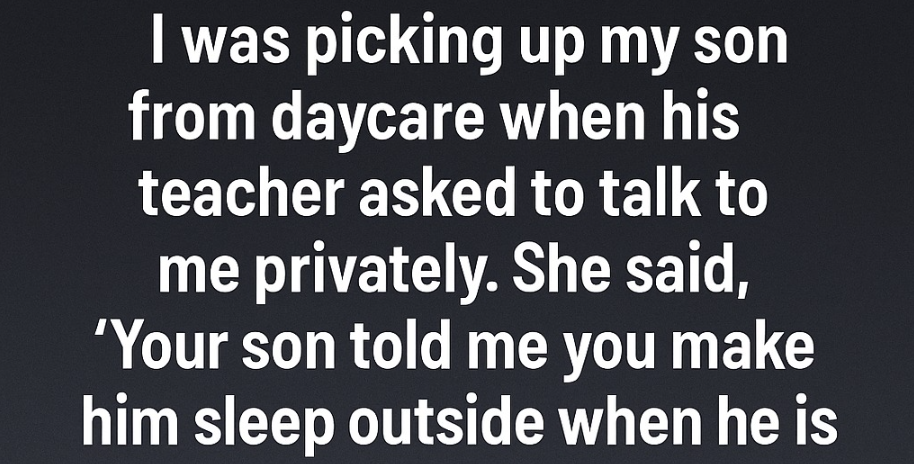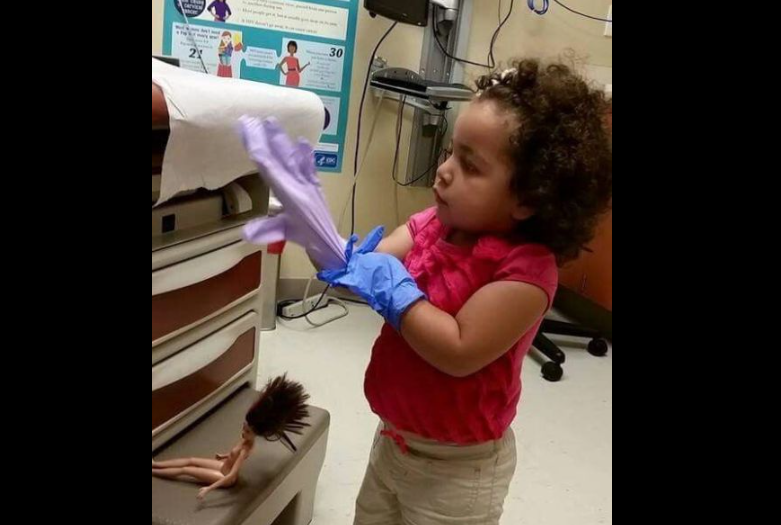The afternoon unfolded much like any other until my son’s daycare teacher pulled me aside, her face etched with concern. Her voice remained calm but carried a heavy undertone as she revealed, “Your son told me you have him sleep outside when he’s been naughty.” My heart sank. A wave of disbelief washed over me. I had never even considered such a thing—where could he have gotten this idea? My mind raced, tangled in a web of confusion, worry, and exasperation.
That evening, after dinner, I decided to approach my son gently. Wanting to keep him at ease, I flashed a warm grin and asked, “Hey, buddy, what tale did you share with your teacher today?” His eyes sparkled as he replied cheerfully, “When I’m bad, you tell me I get to sleep outside with the stars!” In that moment, my tension melted. The knot of anxiety loosened, replaced by a mix of relief and soft chuckles.
The pieces came together. At home, bedtime often turns into a joyful routine. When he’s too energetic to wind down, I playfully suggest he might “camp under the stars.” To him, it’s a thrilling adventure—a chance to imagine drifting off beneath a twinkling sky. But to an adult ear, those words took on a darker meaning. What I meant as a tender, imaginative tease had been misheard.
That experience opened my eyes to how easily misunderstandings bloom between children and adults. Kids see the world through a lens of magic and possibility, while adults view it through a filter of caution and logic. It reminded me that communication demands more than words—it calls for careful listening and clear explanations to prevent assumptions from taking root. Often, the most meaningful lessons emerge from the smallest voices in our lives.




